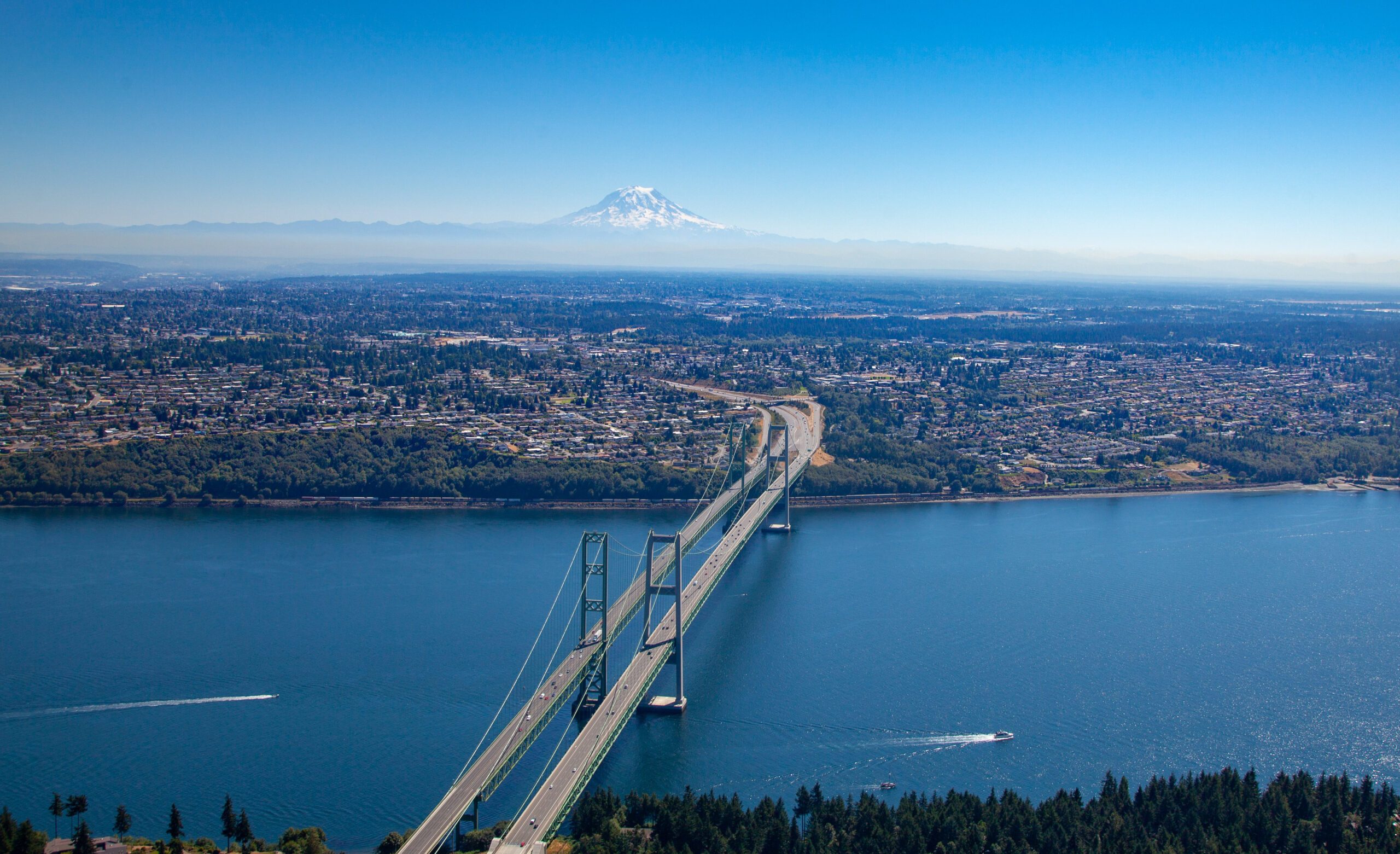The Future of Puget Sound
How will climate change, population growth, and development affect Puget Sound and the natural resources we care about?
Growing human population and changing climate threaten habitats and species, as well as the social and economic systems that depend on them. A major challenge is to understand how future conditions, and our decisions to manage them, will affect the interconnected natural and human systems and minimize trade-offs across multiple regional goals.


The Challenge
How can we make decisions in the face of an uncertain future?
The connections among terrestrial, freshwater, marine and social systems are poorly understood and the Puget Sound region lacks the tools to make well-informed choices. Effective decision support tools must span the terrestrial-freshwater-marine gradient and human systems while accounting for future changes from climate, land conversion, and population growth.
Our Approach
Create a coupled environmental and human systems modeling framework for the entire Puget Sound Basin.
A connected terrestrial-freshwater-marine-human system modeling framework will help us understand the interactive effects of future threats to our region, and evaluate their impacts on ecological, social, and economic objectives.
Linked models with high spatial and temporal resolution will simulate exchanges of water, carbon, nutrients, contaminants, sediments, and organisms across habitats, under current and future conditions.
This tool will support decision makers and inform recovery planning for Puget Sound.
Want to learn more about each of the component models? Click on the infographic pieces at right.
Quick Introduction
Watch our team describe the project goals and how each of the models fit together.
Detailed Overview & Project Update
If you’re interested in learning more, check out the recording, EasyRetro, and slides from our October 18, 2024 workshop with managers from the Puget Sound recovery community.
Project Partners & Funders

News & Events
December 14, 2022
University of Washington Tacoma publicly announces the project via press release.
November 15, 2022
Project kickoff meeting held at Center for Urban Waters in Tacoma, WA
November 29, 2023
Engagement focus group hosted virtually
October 18, 2024
Engagement workshop hosted virtually

Meet the Team

Joel Baker, Ph.D.
Principal Investigator (current)
Puget Sound Institute, UW Tacoma

Tessa Francis, Ph.D.
Principal Investigator (on leave)
Puget Sound Institute, UW Tacoma

Caitlin Magel, Ph.D.
Project Co-Lead
Puget Sound Institute, UW Tacoma

Kevin Bogue, M.S.
Puget Sound Institute, UW Tacoma

Sonali Chokshi
U.S. Environmental Protection Agency, Oak Ridge Associated Universities

Beth Fulton, Ph.D.
CSIRO

Jonathan Halama, Ph.D.
U.S. Environmental Protection Agency

Chris Harvey, Ph.D.
NOAA Northwest Fisheries Science Center

Issac Kaplan, Ph.D.
NOAA Northwest Fisheries Science Center

Tarang Khangaonkar, Ph.D.
Salish Sea Modeling Center, Pacific Northwest National Laboratory

Marielle Larson
Puget Sound Institute, UW Tacoma

Jiang Long, Ph.D.
Puget Sound Institute, UW Tacoma

Robert McKane, Ph.D.
U.S. Environmental Protection Agency

Alaia Morell, Ph.D.
Puget Sound Institute, UW Tacoma

Hem Nalini Morzaria-Luna, Ph.D.
Long Live the Kings

Veronika Polushina
Puget Sound Institute, UW Tacoma

Lakshitha Premathilake, Ph.D.
Pacific Northwest National Laboratory, University of Washington

Alberto Rovellini, Ph.D.
University of Washington, School of Aquatic and Fishery Sciences

Morgan Thornwell, M.S., P.E.
Thornwell Labs, Contractor for U.S. Environmental Protection Agency

Su Kyong Yun, M.S.
Pacific Northwest National Laboratory, University of Washington
